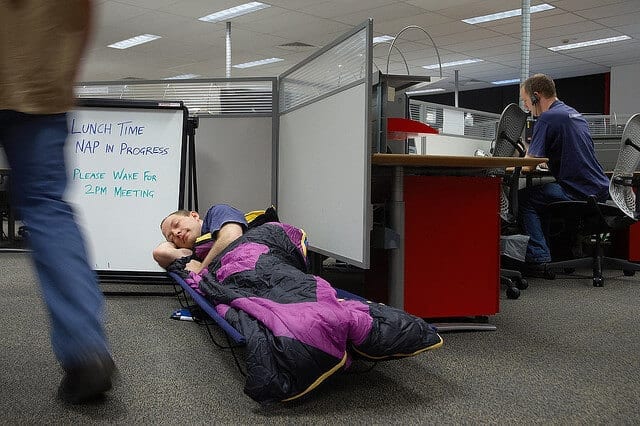Stress Free Life Made Easy By Restilen
There’s a silent killer in your workplace.
It lurks in the shadows, depleting your energy, sacking your concentration, and shaking
your confidence.
Your co-workers talk about it in hushed tones (if at all), and your boss is in denial of its
very existence…
Its name?
Stress.
It’s no joke. Countless studies show that excess stress can cause real physical symptoms like headaches, upset stomach, increased blood pressure, chest pain, and trouble sleeping.
OSHA (The Occupational Safety and Health Administration) deemed stress a “hazard of the workplace,” and estimates put the cost of stress at $190 billion a year in annual healthcare bills.
And it’s not isolated to specific industries – the problem is widespread. 65% of adults say that work is the source of their significant stress.
And the Pandemic(coronavirus) made it worse, leading major problems in life causing too much stress in life, which makes a big impact on our health causing major illness, later on, So Life is always hard don't make it too hard on yourself by risking your health.
The key to learning how to manage stress at work so to keep it at a healthy level and make sure it doesn’t become overwhelming. Easier said than done, right? We’re here to help. Here are 6 tried and true methods for learning how to relieve stress at work – so you can get back to kicking butt.
1. Make Time For Workplace Wellness
Your workplace should support your sustained wellbeing throughout the day. Say it again so you don’t forget. Hard work needs balance to be sustainable. Now, not everyone is lucky enough to have a dedicated home office, but there are plenty of small things you can do to make your work from home experience more enjoyable and healthier. Some excellent items to facilitate this are:
- Greenery in your scenery.
- A water bottle
- Keeping yourself hydrated throughout the day helps to keep your brain alert and “moist” which provides ideal conditions for creative thinking and problem-solving. It also ensures that your body will remind you to get up and move when you need the bathroom.
- Natural light.
- Creating a bright and natural workspace can immensely support your mood and productivity. Also, natural light reduces the need for artificial lighting during the day, which can help to save on energy costs!
- Creating a bright and natural workspace can immensely support your mood and productivity. Also, natural light reduces the need for artificial lighting during the day, which can help to save on energy costs!
2. Prioritize and Organize
Feeling overwhelmed is a major stressor. A great way to make a major reduction in your stress is to learn how to handle stress at your work by prioritizing and organizing. Here’s how to do it:
- Clarify Goals.
- Before you can prioritize, you have to set clear objectives. Make time to sit with your manager and clarify your goals. Be sure that your daily activities trackback to one of your overarching goals.
- Focus on 2-3 things, Max.
- There’s an old saying – if everything is a priority, nothing is a priority. Focus on the “biggest levers” – that is, the 2 or 3 things each week that will have the biggest impact on your goals.
- Set Deadlines.
- As a general rule, if a task doesn’t have a deadline, it will get pushed aside for one that does. Set realistic deadlines for everything, and everything will get done.
- Make a To-Do List.
- So simple, yet so effective. To make sure things get done, write them down in a notebook or a note-taking app. If you’re still overwhelmed, use task management software like monday.com to keep a handle on your daily activity, and make sure nothing slips through the cracks.
3. Form Positive Relationships
Making friends at work isn’t always easy. In fact, a recent sociology study suggests people may need to spend up to 200 hours together before they consider themselves “close friends.” Hours spent bonding at work can help build friendships, but the dedicated quality time spent on team-building can speed up the bonding process.
Rally a team to use a resource such as Go Game to bring more team-building time into your office environment. As you race through scavenger hunts, solve puzzles, play lawn games, and more, you’ll notice strong friendships forming organically.
Here are some other tips for fostering positive personal relationships at work:
- Start your own “buddy” or mentorship program.
- At SnackNation, every new hire gets a veteran “buddy” to show them the ropes, introduce them to people, and provide guidance and support.
- By design, this “buddy” isn’t a manager. It’s someone in whom you can confide any concern, personal or professional. Our SN buddies are trained to lend an ear and provide judgment-free advice.
- The system works best when buddies are from different departments, so there’s less chance of office politics becoming a factor.
- Put down your smartphone!
- Instead of burying your head in your Instagram feed at lunch, leave your phone at your desk during breaks, and engage with co-workers.
- Encourage vulnerability.
- Vulnerability exercises are something we do at our SnackNation offsites. After breaking out into smaller groups of four or five, everyone in the group is encouraged to share something personal – often a meaningful experience from their upbringing.
- The relationships formed during these vulnerability exercises are the basis for some of the deepest and longest-lasting relationships at the company.
- Host an interactive event.
- Speed up the getting-to-know-you process by taking part in a structured activity, like a guided brewery tour. With a charismatic beer nerd guide at the helm and an itinerary to follow, you’ll have plenty in common to talk about and can avoid any awkward silences. But what if you work remotely? Get everyone together online instead! We love this virtual homebrewing class by City Brew Tours.
- After a long week, plan an event that stimulates creativity and problem solving to reduce stress at work. Some of our favorites include:
4. Start Exercising (or Exercise More)
With its mood-boosting and endorphin-releasing properties, regular aerobic exercise is a natural stress reducer.
Exercise’s ability to elevate mood is well documented. Numerous studies going back to the early ’80s found that regular exercise can improve mood for people with moderate depression.
In fact, a 1999 study found that exercise was just as effective in eliminating depression antidepressants. Exercise also helps get your mind off your stressful thoughts. By training yourself to be in the moment and focus on your body’s movements (rather than mulling over your worries), exercise can be a form of active meditation and have a calming effect on the body and mind.
You should aim for a minimum of 30 minutes of activity each day. If you don’t have the time to fit in a run or gym session before or after work each day, here are some tips to increase your mobility in the office:
- Launch a wellness challenge.
- Gamify company fitness by launching a wellness challenge. Shoot for a team-wide goal, but also reward top performers to foster some friendly competition. At Snack Nation, we passed out fitness trackers and added up our steps in a bid to virtually “walk” the distance from LA to San Francisco during our wellness month. Each week, we also named a winner for the most active team member.
- Switch to an “Active Desk.”
- Sitting for long stretches at your desk is not good for your health. Alternatively, standing desks get you out of your chair and on your feet. This works your stabilizing leg and stomach muscles, your heart, and lets you burn extra calories. Check out Restilen is an effective way to forget about stress. (this is the one I personally suggest).
- Take walking meetings.
- In a recent interview with the Awesome Office Show, BittyFoods CEO Megan Miller explained that she gets in daily exercise by taking calls while strolling through San Francisco’s Golden Gate Park. LA-based skincare brand Murad also installed a walking track in their office space to encourage team members to get up from their desks during the day.
- In a recent interview with the Awesome Office Show, BittyFoods CEO Megan Miller explained that she gets in daily exercise by taking calls while strolling through San Francisco’s Golden Gate Park. LA-based skincare brand Murad also installed a walking track in their office space to encourage team members to get up from their desks during the day.
5. Eat Healthy and Nutritious Foods
Ever heard the phrase “eat your feelings”?
It’s a real phenomenon. Many people turn to unhealthy “comfort foods” as stress management at work.
Safe to safe that dealing with work stress in this manner is not good. Why does this happen? When we’re stressed, our brain releases the hormone cortisol, which makes us crave salty, sweet, and fat-laden foods for the temporary pleasure they bring. But ironically, “stress eating” only exacerbates the problem.
Sugar or fat-laden foods like pizza, burgers, and ice cream make us feel lethargic, and less likely to tackle the problems that lay before us, which in turn only increases our stress.
Ever heard the phrase “eat your feelings”?
It’s a real phenomenon. Many people turn to unhealthy “comfort foods” as stress management at work.
Safe to safe that dealing with work stress in this manner is not good. Why does this happen? When we’re stressed, our brain releases the hormone cortisol, which makes us crave salty, sweet, and fat-laden foods for the temporary pleasure they bring. But ironically, “stress eating” only exacerbates the problem.
Sugar or fat-laden foods like pizza, burgers, and ice cream make us feel lethargic, and less likely to tackle the problems that lay before us, which in turn only increases our stress.
That’s why it’s so important to eat healthy foods that are rich in complex carbohydrates that fuel our brains and support concentration and focus.
Not sure what to eat? Here are some tips: Eat this:
- Complex carbs like whole-wheat bread or pasta and vegetables
- Foods high in fiber like fruits and vegetables
- Superfoods like Kale, Dark Chocolate, and blueberries, which contain mood-boosting antioxidants
- Lean proteins like chicken, or better yet, wild-caught Alaskan Salmon (high in mood stabilizing omega-3’s)
- Avoid this:
- Foods high in fat like cheese and red meat, which lead to lethargy and sluggishness
- Foods high in refined carbs or sugar, which cause your energy to spike and crash
- Caffeinated drinks like coffee and soda, which inhibit your ability to sleep
- Nicotine, a stimulant that can boost your anxiety
- Alcohol, a natural depressant
And don’t forget, no other food category impacts your overall diet like snacking. The
availability of healthy snacks will help improve your diet and keep your stress in check.
6. Get Enough Sleep
We can’t say this enough – get some sleep!
Stress has long been linked to chronic insomnia. But while conventional wisdom treats the inability to sleep as a symptom of stress, researchers at Harvard medical school found that poor sleep may actually be a contributing factor.
That’s because a lack of sleep inhibits your ability to cope with even normal amounts of stress, and negatively affects your mood and outlook. The point is, you can’t hope to reduce stress when you’re on edge and irritable from lack of sleep. Here are some tips to get your sleep schedule back on track:
- Shoot for eight hours a night.
- There used to be a stigma, especially among business leaders, that “sleep is for the weak.” The most productive people know that you can’t operate at peak performance without the regenerative effects of proper sleep. So don’t skimp!
- Stick to a schedule.
- Set your body’s internal clock by hitting the hay at the same time every night. You should be able to fall asleep fairly quickly and wake at the same time each day without an alarm clock. And speaking of sticking to a schedule…
- Avoid sleeping in on weekends.
- While it may be tempting, sleeping in can throw off this schedule and undo the progress you’ve made.
- Turn off screens 1 hour before you want to go to bed.
- Whether it’s TV, laptops, or our smartphones, screens keep our brains engaged and make it difficult for us to fall asleep. Winding down your day with healthy activity and avoiding screen time can help you better cope in a demanding job.
- Take cat naps.
- We’re talking 15-20 minutes, max. While we definitely believe that naps are regenerative, don’t overdo it. Again, the goal is to get in a rhythm of getting proper sleep more often than not, so you’re clear headed and ready to take on the day.
Bonus: Kick Your Bad Habits
Managing stress at work is partially about your mindset. Your outlook can have a huge impact on your ability to cope with everyday stressors. Keep them in check so they don’t become major sources of negative stress. Here are a few tips to change your mindset by break the bad habits that are holding you back:
- Stay positive.
- One way to do this is to express gratitude. It’s surprising how much different your outlook is when you make a point to recognize the people and things in your life that you’re lucky to have.
- Resist perfectionism.
- Don’t fear mistakes, learn from them. The desire to be perfect can make your stress spike and your self-worth plummet. Recognize that failures don’t define you, they’re just opportunities for learning and growth.
- Focus on what you can control.
- Much of the anxiety we experience is over the uncertainty caused by things outside our control. The best way to combat that is to only focus on the things we can control – like our effort, our attitude, and how we treat people – rather than the outcomes we can’t.
Conclusion
Of course, not all stress is created equal. A certain amount of healthy stress in the workplace is actually a good thing. Experts make a distinction between eustress (good) and distress (bad) and point out that eustress is actually necessary for individuals to make breakthroughs and companies to grow.
What’s the difference? Eustress is motivating. It keeps you on task and helps you cross the finish line. Distress is debilitating and occurs when the good stress builds up and becomes too much to cope with. Negative work stress can come from a variety of factors. (Any of these sound familiar?)
- Fear of being laid off or fired
- Additional overtime due to budget cuts
- Pressure due to constantly rising expectations
- Pressure to constantly work at peak levels
How do you know if your stress level is out of control? Here are a few warning signs:
- Depressed mood – you may lose confidence, become angry, irritable, or withdrawn
- You lose interest in your work, and a sense of apathy takes over
- You’re unable to sleep or experience fatigue during the day
- You have trouble concentrating
- You experience muscle tension, headaches, or stomach problems
- You notice a decrease in your libido
- You turn to alcohol or drugs as a coping mechanism
- Much of the anxiety we experience is over the uncertainty caused by things outside our control. The best way to combat that is to only focus on the things we can control – like our effort, our attitude, and how we treat people – rather than the outcomes we can’t.










Comments
Post a Comment